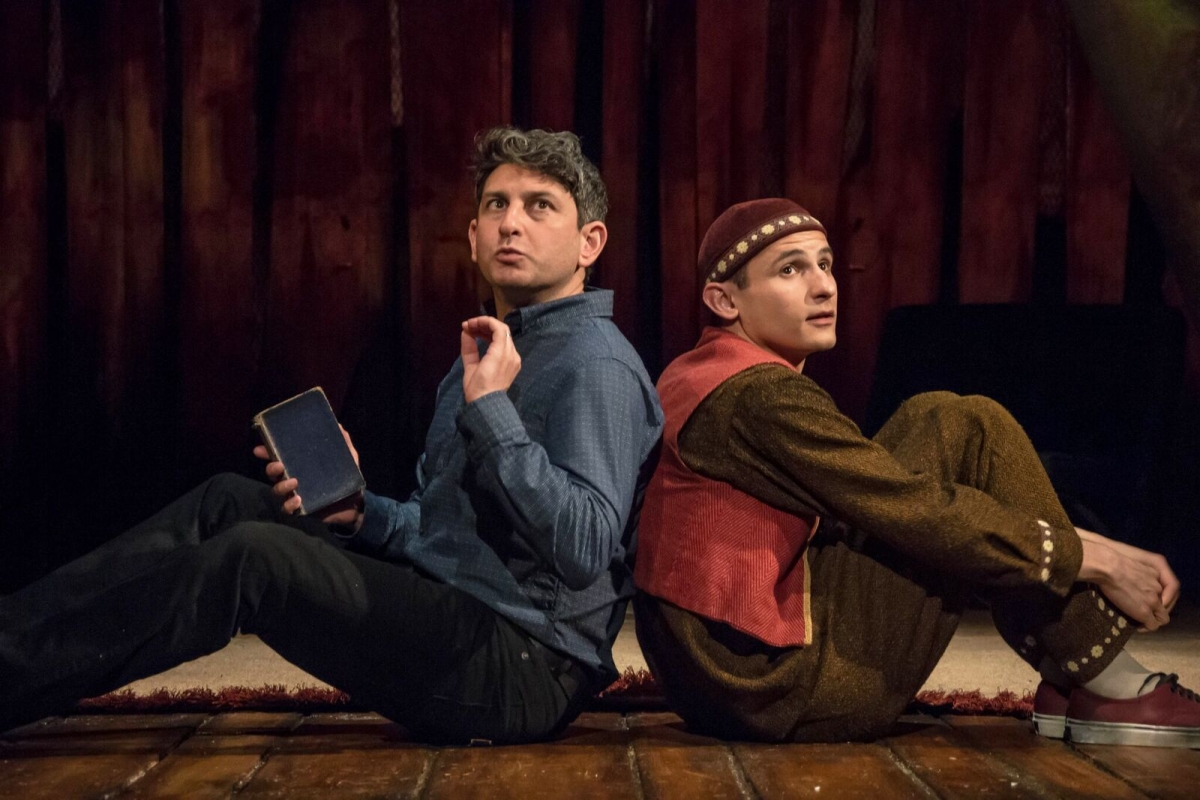The stage adaptation of Khaled Hosseini’s globel bestselling novel, The Kite Runner, by The Nottingham Playhouse and Liverpool Everyman and Playhouse continues its tour this week at West Yorkshire Playhouse.
Matthew Spangler’s stage adaptation of Khaled Hosseini’s world-renowned novel bleeds bookish nostalgia – it teaches us to read our own lives in the same way David Ahmad explores and performs Amir’s. The play attempts to revive the encapsulating nature of the book and, while it falls short in its immersion, it still recreates the same sense of warmth.
The play’s first act was tightly packed with tear-jerking moments and in that short hour the play was at its most powerful. Divided into an hour-long first act and a one hour and twenty-minute second act, this seemingly odd format wound tight at first and unravelled after the interval as Amir spent a long time atoning for his sins.
This is not to say that the second act lacked power; Ahmad’s sincere and simple story-telling as figures enter and leave his life artfully mimicked a friend confiding in the audience. While at times the novel’s famed quotations such as ‘for you, a thousand times over’ seemed to be used as emotional soundbites and seemed overly orchestrated, Ahmad’s natural take on the role was the strength of the performance.
The simplistic set with sloped sides allowed perfectly for two boys to be children and for Ahmad to interchange between the juvenile and the mature. The descending fans allowed for scenes to be projected onto the stage without losing a sense of the kite-flying traditions of Kabul. However, these acted as a barrier for difficult topics – the scene in which Hassan is raped, while narrated by Ahmad, loses the graphicness of the novel and fades away, seeming almost like an easy escape. Perhaps replicating the book’s brutality would have transitioned more forcefully to the stage.
Jo Ben Ayed’s portrayal of both Hassan and his son, Sohrab, was the perfect accompaniment to Amir’s change from speaking over Hassan to speaking for him by the end of the play. While Ayed had few lines, his innocence, vulnerability and childish gate elegantly contrasted Ahmad’s greying hair and dad-like outfit.
It was Ahmad who led the show, but the multifaceted company swiftly adapted from role to role, often unrecognisably so, but still managing to haunt the characters they occupied with remnants of the past. The play fittingly ended as the key figures in Amir’s life returned to the stage in the final scene like spectres, perfectly encapsulating the moulding influence they had in creating that ending.

Musically, the play succeeds. Hanif Khan’s constant presence on stage playing the tabla and cast members playing singing bowls and spinning ratchet-like instruments ensured that music was not simply a soundtrack or accompaniment. The past was recreated with sound as both an indicator of mood and a cultural reminder by those very same characters who shaped Amir himself.
This is a definite watch for those who fell in love with Hosseini’s novel and while a fantastic example of story-telling, is a narrative that sits more comfortably on the page rather than the stage.
The Kite Runner remians at West Yorkshire Playhouse until 23rd September and continues its tour of the UK until June 2018.
Rose Crees
(Image courtesy of London Theatre)

